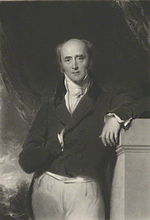Charles Grey, 2nd Earl Grey, Date of Birth, Place of Birth, Date of Death
TweetCharles Grey, 2nd Earl Grey
Prime Minister of the United Kingdom of Great Britain and Ireland
 Date of Birth: 13-Mar-1764
Date of Birth: 13-Mar-1764
 Place of Birth: Fallodon, England, United Kingdom
Place of Birth: Fallodon, England, United Kingdom
Date of Death: 17-Jul-1845
Profession: politician
Zodiac Sign: Pisces 
About Charles Grey, 2nd Earl Grey
- Charles Grey, 2nd Earl Grey, (13 March 1764 – 17 July 1845), known as Viscount Howick between 1806 and 1807, was Prime Minister of the United Kingdom from November 1830 to July 1834. A member of the Whig Party, he was a long-time leader of multiple reform movements, most famously the Reform Act 1832.
- His government also saw the abolition of slavery in the British Empire, in which the government purchased slaves from their owners in 1833.
- Grey was a strong opponent of the foreign and domestic policies of William Pitt the Younger in the 1790s.
- In 1807, he resigned as foreign secretary to protest the King's uncompromising rejection of Catholic Emancipation.
- Grey finally resigned in 1834 over disagreements in his cabinet regarding Ireland, and retired from politics.
- His biographer G.
- M.
- Trevelyan argues: in our domestic history 1832 is the next great landmark after 1688 ...
- [It] saved the land from revolution and civil strife and made possible the quiet progress of the Victorian era. Scholars rank him highly among all British prime ministers.
- Earl Grey tea is named after him.
Read more at Wikipedia



